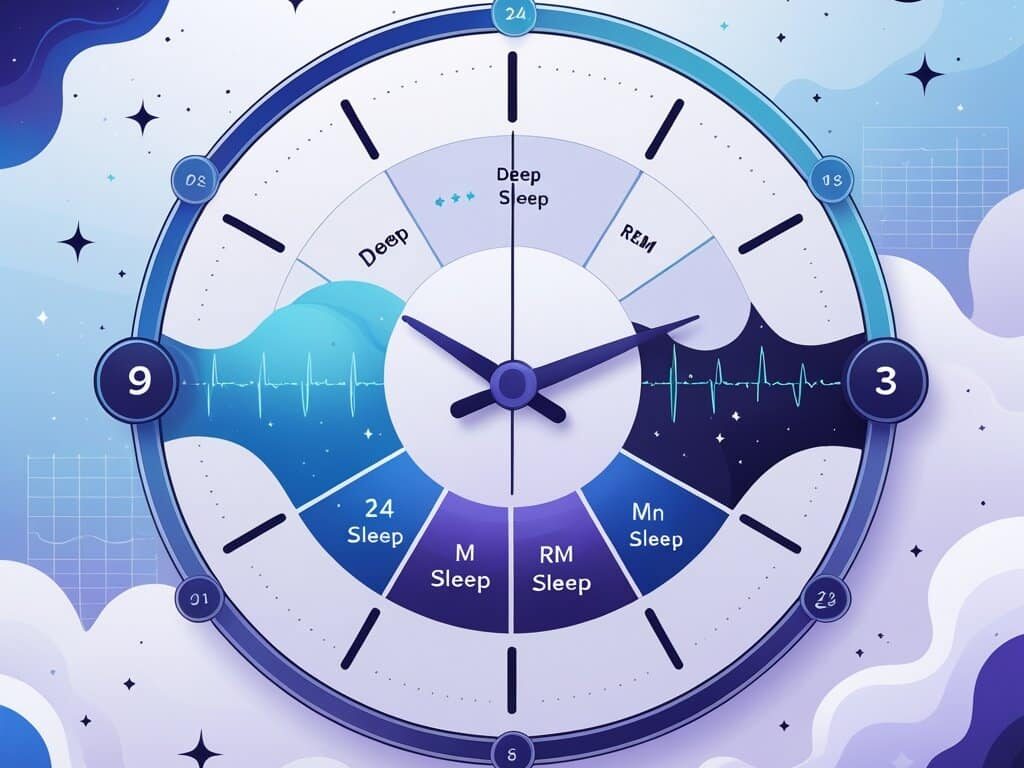Unlocking the Secret to 8 Hours of Sleep: A Student’s Guide

You’re staring at your phone at 2 AM, scrolling through social media while tomorrow your have an exam. Your coffee cup sits empty beside a pile of textbooks, and you know you should sleep, but your mind is thinking. Sound familiar?
If you’re a college student struggling to get quality rest, you’re not alone. Getting 8 hours of sleep feels impossible when you’re juggling classes, assignments, work, and a social life. But here’s the thing – your sleep directly impacts your grades, stress levels, and overall health more than you realize.
Click here to a know how much sleep you need
How Your Sleep Schedule Controls Your GPA
Your brain needs sleep to form memories and process information from your classes. When you skip sleep, you’re essentially throwing away hours of study time because your brain can’t properly store what you learned.
The real culprits stealing your sleep include:
• Stress and anxiety – not just caffeine like most students think
• Inconsistent bedtimes – confusing your body’s natural rhythm
• Poor sleep environment – too much light, noise, or screen time
Understanding Why Sleep Matters for Academic Success

As a student, you might wonder why sleep deserves your priority in your packed schedule. Research reveals that adequate sleep is crucial for maintaining memory, emotional regulation, and mental sharpness. When you consistently get 8 hours of sleep, your brain consolidates the information you studied during the day better.
Sleep’s Impact on Academic Performance and Course Completion
Your academic success directly correlates with your sleep patterns. Studies of college students show that better quality, longer duration, and greater consistency of sleep correlate with better grades. Nearly 25% of academic performance variance can be attributed to sleep quality and duration.
When you sacrifice sleep for studying, you’re undermining your learning capacity. Sleep deprivation negatively impacts memory encoding and consolidation – processes vital for absorbing the high volume of knowledge required in your coursework. Students who experience insufficient sleep often face challenges in academic achievement.
Key Academic Benefits:
• Memory consolidation strengthens during sleep, helping you retain studied material more effectively
• Consistent 8 hours of sleep supports better test performance and overall course grades
• Poor sleep quality increases likelihood of below-average GPA performance
Effects on Pain Sensitivity and Physical Health

Your physical wellbeing suffers when sleep becomes inconsistent. Persistent lack of sleep affects your body’s ability to regulate pain sensitivity and maintain optimal health. Students pursuing demanding degrees frequently experience interrupted sleep patterns due to rigorous academic workloads.
Regular sleep deprivation leads to excessive daytime drowsiness and compromises your immune system. When you consistently sleep less than seven hours nightly, you face higher chances of developing physical health complications that can further impact your academic performance.
Physical Health Impacts:
• Sleep deprivation increases pain sensitivity and reduces physical recovery capacity
• Insufficient rest weakens immune function, making you more susceptible to illness
• Maintaining 8 hours of sleep supports better physical health and energy levels
Connection Between Sleep Quality and Cognitive Function
Your cognitive abilities depend heavily on sleep quality and duration. Research shows that all cognitive gains happen while you’re asleep, as your brain processes and organizes the day’s information. Short-term sleep deprivation studies reveal worsened cognitive performance beyond just fatigue.
When you maintain consistent sleep schedules, your mental sharpness improves significantly. Students who go to bed earlier, sleep more soundly, and maintain regular schedules demonstrate better academic outcomes. The connection between 8 hours of sleep and enhanced cognitive function is scientifically established.
Cognitive Enhancement Benefits:
• Sleep solidifies memories by strengthening neural connections formed during study sessions
• Consistent sleep patterns improve focus, attention, and information processing abilities
• Quality 8 hours of sleep enhances problem-solving skills and critical thinking capacity
Determining Your Optimal Sleep Duration

Now that we’ve explored why sleep matters for academic success, let’s determine how much sleep you actually need. Understanding your sleep requirements is crucial for developing an effective sleep routine that supports your academic success.
Individual Variations in Sleep Needs (7-9 Hours)
Most college-aged students need 7-9 hours of sleep according to The Sleep Foundation. However, your optimal duration may vary within this range based on individual factors.
If you’re averaging 6-6½ hours nightly, you’re likely sleep deprived. This deficit leads to daytime drowsiness, concentration problems, memory issues, slowed reactions, mood changes, and low energy levels.
Key factors affecting your sleep needs:
• Age, genetics, and overall health status influence your personal sleep requirements
• Academic workload and stress levels may temporarily increase your need for restorative sleep
• Physical activity and lifestyle factors can impact how much sleep your body requires for optimal recovery
Understanding Sleep Continuity vs Sleep Duration

Quality matters as much as quantity when achieving 8 hours of sleep. Continuous, uninterrupted sleep provides better restoration than fragmented sleep of the same duration.
Your brain organizes and correlates memories during sleep cycles. Frequent interruptions disrupt these essential processes, reducing the restorative benefits even when total sleep time seems adequate.
Sleep also repairs daily damage from stress, pollutants, and other environmental factors. Continuous sleep allows your body to complete these crucial repair processes more effectively.
Sleep continuity benefits:
• Uninterrupted sleep cycles allow complete memory consolidation and learning enhancement
• Continuous rest provides better stress hormone regulation and blood pressure control
• Quality sleep improves emotional stability and cognitive performance more than fragmented sleep
Measuring Sleep Quality Through Assessment
When self-improvement strategies fail to deliver 8 hours of sleep or quality rest, professional assessment becomes necessary. Healthcare providers can identify underlying causes affecting your sleep patterns.
Prepare for appointments by maintaining a sleep diary for several nights. Document bedtimes, wake times, sleep quality, and daily factors that might influence rest.
Cornell Health clinicians can recommend appropriate treatments based on your specific sleep challenges. Professional evaluation helps distinguish between lifestyle factors and potential sleep disorders requiring medical intervention.
Professional assessment indicators:
• Ongoing sleep problems despite good sleep hygiene practices warrant medical consultation
• Persistent mood, energy, or behavioral changes related to sleep issues need professional evaluation
• Sleep diaries and detailed symptom tracking help healthcare providers develop targeted treatment plans
Identifying the Real Culprits Disrupting Student Sleep

Stress as the Primary Sleep Disruptor
University life brings unprecedented challenges that severely disrupt your sleep patterns. You face leaving home, increased independence, new social situations, and maintaining academic responsibilities simultaneously. About 90% of students have roommates, with 41% experiencing nighttime awakenings due to others’ noise.
Key stress factors disrupting your 8 hours of sleep:
• Academic pressures and variable class schedules creating irregular sleep-wake patterns
• Social adjustments and peer group changes affecting your natural bedtime routines
• Financial and independence concerns keeping your mind active when you should be sleeping
How Fight-or-Flight Response Affects Sleep Patterns

Your body’s stress response system directly interferes with achieving quality rest. When facing academic deadlines or social pressures, your sympathetic nervous system becomes hyperactive. This physiological arousal makes falling asleep significantly more difficult, even when you desperately need rest.
The fight-or-flight response elevates cortisol levels and increases heart rate during evening hours. Your body remains in a state of alertness when it should be preparing for sleep. This creates a vicious cycle where stress prevents sleep, and sleep deprivation increases stress sensitivity.
How stress responses sabotage your 8 hours of sleep:
• Elevated cortisol and adrenaline levels keeping you physically wired despite mental exhaustion
• Racing thoughts and rumination about daily events preventing natural sleep onset
• Hypervigilance making you more sensitive to environmental disturbances throughout the night
The Role of Depression, Anxiety, and ADHD in Sleep Quality
Mental health conditions significantly impact your ability to maintain consistent sleep patterns. Students with insomnia commonly suffer from depression, anxiety, chronic fatigue, and lower quality of life. These conditions create a complex web where poor sleep worsens mental health symptoms.
Research reveals that 27% of university students are at risk for at least one sleep disorder. Depression and anxiety often manifest as rumination about stressful events, particularly around exam periods. This mental activity directly interferes with your natural sleep onset mechanisms.
ADHD affects 2-8% of college students, with symptoms significantly disrupting sleep architecture. Students with ADHD often struggle with irregular bedtimes and difficulty maintaining the consistent schedule necessary for 8 hours of sleep.
Mental health impacts on your sleep quality:
• Depression causing early morning awakenings and non-restorative sleep patterns
• Anxiety disorders creating persistent worry cycles that prevent deep sleep phases
• ADHD medications and symptoms disrupting your natural circadian rhythm alignment
The connection between mental health and sleep creates a bidirectional relationship. Poor sleep quality worsens symptoms of depression and anxiety, while these conditions make achieving restorative sleep increasingly difficult. Students often report more rumination following stressful life events, which correlates with longer sleep-onset latency and reduced sleep efficiency throughout the night.
Managing Caffeine and Dietary Factors

Now that we’ve covered sleep disruptors, let’s examine how your dietary choices directly impact your ability to achieve 8 hours of sleep. Research shows caffeine reduces sleep efficiency by 7% and delays sleep onset by 9 minutes.
Timing Caffeine Consumption for Better Sleep
Your caffeine timing determines sleep quality more than quantity. Coffee containing 107mg caffeine should be consumed at least 8.8 hours before bedtime to avoid reducing total sleep time.
Key caffeine timing guidelines:
• Regular coffee (107mg): Stop 8.8 hours before bed
• Pre-workout supplements (217.5mg): Stop 13.2 hours before bed
• Monitor individual sensitivity levels
Pre-workout supplements require even longer clearance times due to higher caffeine content. To maintain your 8 hours of sleep, calculate backwards from your target bedtime when planning caffeine consumption.
Limiting Sugar Intake in Evening Hours

Evening sugar consumption creates energy spikes that interfere with natural sleep preparation. Your body needs stable blood glucose levels to transition into restorative sleep cycles effectively.
Sugar intake before bed can delay sleep onset and reduce deep sleep quality. Plan your last sugary snack at least 3-4 hours before your intended 8 hours of sleep period begins.
Evening dietary strategies:
• Avoid refined sugars 3-4 hours before bedtime
• Choose complex carbohydrates for sustained energy release
• Monitor hidden sugars in beverages and snacks
Choosing Sleep-Friendly Beverages and Snacks
Your evening beverage choices significantly impact sleep quality and duration. Caffeine consumption increases light sleep duration by 6.1 minutes while decreasing deep sleep by 11.4 minutes according to recent research.
Replace caffeinated drinks with herbal teas or warm milk in evening hours. These alternatives support your body’s natural preparation for 8 hours of sleep without stimulating effects.
Sleep-promoting options:
• Herbal teas (chamomile, passionflower) for relaxation
• Warm milk containing natural tryptophan
• Small protein-rich snacks to prevent hunger-related wake-ups
Your dietary choices in the 4-6 hours before bed directly influence whether you’ll achieve quality 8 hours of sleep or experience fragmented, insufficient rest throughout the night.
Sleep Success Summary
| Key Area | Main Takeaway |
|---|---|
| Why Sleep Matters | Affects academic performance, pain tolerance, and overall well-being |
| Optimal Duration | 7-9 hours per night, with 8 hours being ideal for most students |
| Sleep Disruptors | Stress is the biggest factor, followed by irregular schedules and blue light |
| Managing Diet | Limit caffeine and sugar, especially in afternoon and evening hours |
Essential Sleep Strategies
• Maintain consistency: Go to bed and wake up at the same time daily, even on weekends, to regulate your internal clock.
• Address stress first: Since stress impacts sleep more than caffeine, practice relaxation techniques and seek support when overwhelmed.
• Create ideal conditions: Use blackout curtains, keep rooms cool, and eliminate electronic devices an hour before bedtime.
• Time your intake: Avoid caffeine after 2 PM and heavy meals close to bedtime for better sleep quality.
Your academic success depends significantly on quality sleep. Research shows that just one night of poor sleep makes you 10% more likely to drop a course. By implementing these evidence-based strategies, you’ll improve not only your grades but also your physical and mental well-being.
Are you ready to prioritize your sleep and unlock your full academic potential starting tonight?
Sleep Tool
References
Sleep Foundation. “How Much Sleep Do You Really Need?” Sleep Foundation, 11 July 2025, https://www.sleepfoundation.org/how-sleep-works/how-much-sleep-do-we-really-need
Cornell University Student Health Service. “Sleep.” Cornell Health, https://health.cornell.edu/resources/health-topics/sleep
Drake, Christopher, Timothy Roehrs, John Shambroom, and Thomas Roth. “Caffeine Effects on Sleep Taken 0, 3, or 6 Hours before Going to Bed.” Journal of Clinical Sleep Medicine, vol. 9, no. 11, 15 Nov. 2013, pp. 1195–1200, doi:10.5664/jcsm.3170, https://pubmed.ncbi.nlm.nih.gov/24235903/
Centers for Disease Control and Prevention. “Sleep and Health.” CDC — Physical Activity & Education, 2 July 2024, https://www.cdc.gov/physical-activity-education/staying-healthy/sleep.html
Harvard Medical School, Division of Sleep Medicine. “Sleep and Memory.” Sleep and Health Education Program, https://sleep.hms.harvard.edu/education-training/public-education/sleep-and-health-education-program/sleep-health-education-88
American Academy of Sleep Medicine. “Caffeine, Naps and Exercise: How Americans Fight Daytime Sleepiness.” AASM, 29 Oct. 2024, https://aasm.org/caffeine-naps-and-exercise-how-americans-fight-daytime-sleepiness/
“The Effect of Caffeine on Subsequent Sleep: A Systematic Review and Meta-Analysis.” ScienceDirect (article summary), 2023, https://www.sciencedirect.com/science/article/pii/S1087079223000205
Hershner, S. R., and R. D. Chervin. “Causes and Consequences of Sleepiness among College Students.” 2014, National Center for Biotechnology Information (PMC), https://pmc.ncbi.nlm.nih.gov/articles/PMC4075951/
Centers for Disease Control and Prevention. “Psychosocial Correlates of Insomnia Among College Students.” Preventing Chronic Disease, 2022, PDF, https://www.cdc.gov/pcd/issues/2022/pdf/22_0060.pdf
Weill Cornell Medicine. “Center for Sleep Medicine.” Weill Cornell — Neurology & Sleep Services, https://weillcornell.org/services/neurology/center-for-sleep-medicine
Cornell Health. “Refresh: Cornell’s Online Sleep Program.” Cornell Health initiatives, https://health.cornell.edu/initiatives/campus-initiatives/refresh-cornells-sleep-program


Pingback: Importance of Sleep: Transform Your Bedroom for Rest